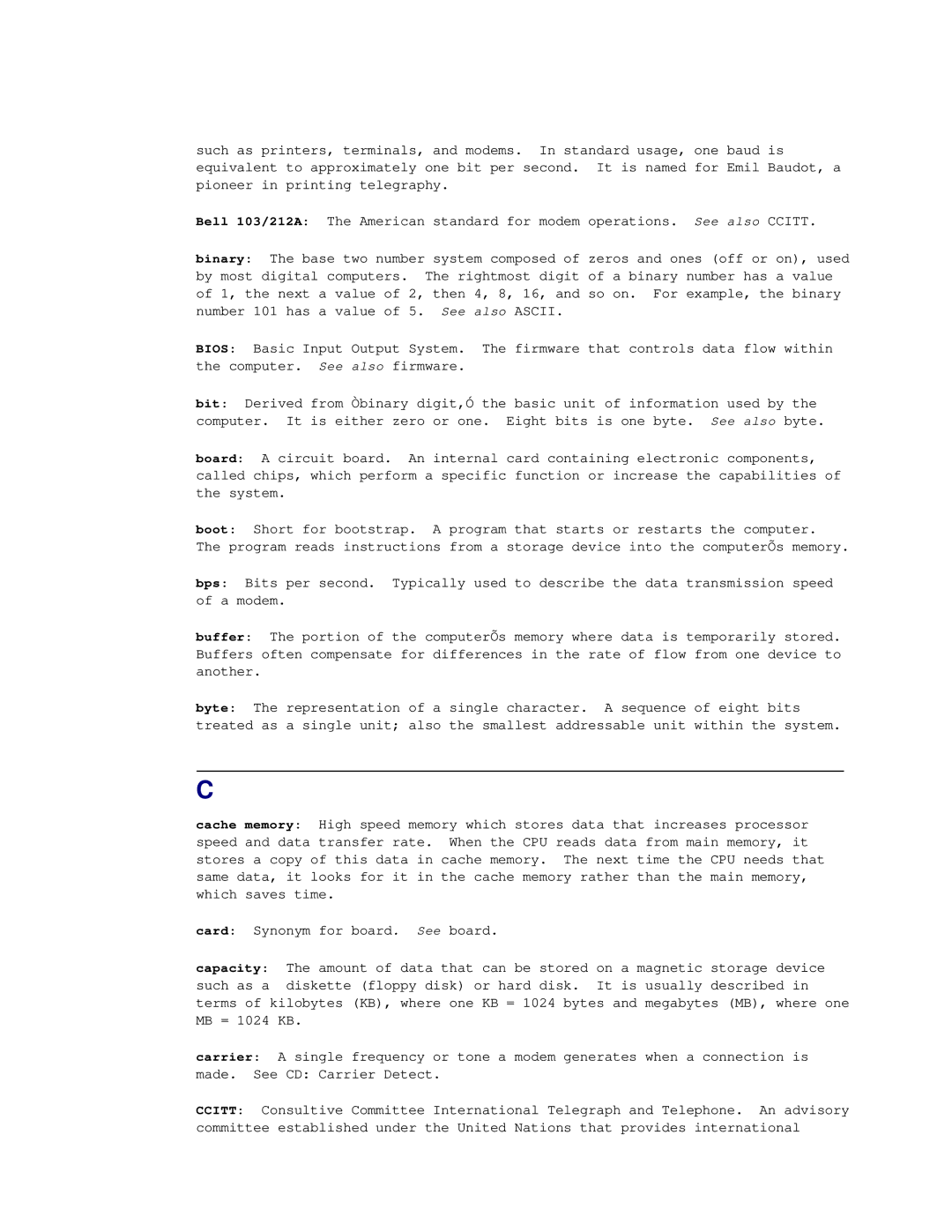such as printers, terminals, and modems. In standard usage, one baud is equivalent to approximately one bit per second. It is named for Emil Baudot, a pioneer in printing telegraphy.
Bell 103/212A: The American standard for modem operations. See also CCITT.
binary: The base two number system composed of zeros and ones (off or on), used by most digital computers. The rightmost digit of a binary number has a value of 1, the next a value of 2, then 4, 8, 16, and so on. For example, the binary number 101 has a value of 5. See also ASCII.
BIOS: Basic Input Output System. The firmware that controls data flow within the computer. See also firmware.
bit: Derived from Òbinary digit,Ó the basic unit of information used by the computer. It is either zero or one. Eight bits is one byte. See also byte.
board: A circuit board. An internal card containing electronic components, called chips, which perform a specific function or increase the capabilities of the system.
boot: Short for bootstrap. A program that starts or restarts the computer. The program reads instructions from a storage device into the computerÕs memory.
bps: Bits per second. Typically used to describe the data transmission speed of a modem.
buffer: The portion of the computerÕs memory where data is temporarily stored. Buffers often compensate for differences in the rate of flow from one device to another.
byte: The representation of a single character. A sequence of eight bits treated as a single unit; also the smallest addressable unit within the system.
C
cache memory: High speed memory which stores data that increases processor speed and data transfer rate. When the CPU reads data from main memory, it stores a copy of this data in cache memory. The next time the CPU needs that same data, it looks for it in the cache memory rather than the main memory, which saves time.
card: Synonym for board. See board.
capacity: The amount of data that can be stored on a magnetic storage device such as a diskette (floppy disk) or hard disk. It is usually described in terms of kilobytes (KB), where one KB = 1024 bytes and megabytes (MB), where one MB = 1024 KB.
carrier: A single frequency or tone a modem generates when a connection is
made. See CD: Carrier Detect.
CCITT: Consultive Committee International Telegraph and Telephone. An advisory committee established under the United Nations that provides international
